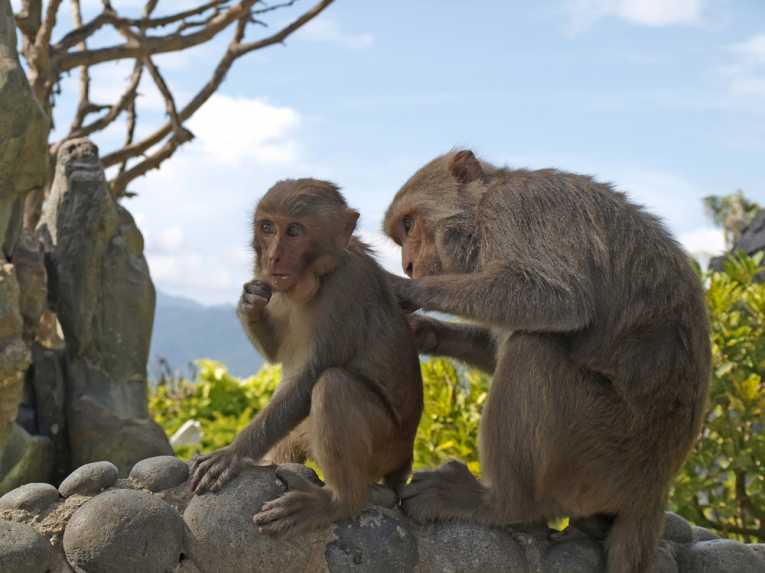The diversity of primates is legion, but within each species is a diversity that has enabled them to conquer continents, forest, scrub and montane environments. Once any species is established in its niche, a degree of conservatism seems to creeps in.
Selection favours the genes that work well in the habitats it uses. A damaging variation may not be a mutation as we commonly think of it. Often the gene(s) concerned in damaging variation were useful in the ancestor, but no longer serve their function.
Strong selection pressures maintain the human species' gene function such that we need a minimum of 8000 people in our population to maintain our present variation rate. One primate however is legions ahead in variation. Needing 80,000 to maintain the effective current population genetic base, one monkey, with a population which used to equal ours, has conquered its share of savannah and forest in many climate zones, involving an estimated 13 sub-species.
The rhesus macaque (Macacca mulatta) is the famous "lab monkey," used in research and even flying to the Moon (if not back again!). 25 million years ago, we shared an ancestor, but now this species is the one that left Africa and colonised much of Asia with millions of individuals (including present human city niches) 3 million years ago.
Only 80,000 -150,000 years ago did we leave Africa in a similar "mission", with a population oscillating around the million mark. In their new research published in BMC Genetics, the Maryland-based NIH (National Institute on Alcohol Abuse and Alcoholism) authors, Drs. Christina Barr and David Goldman worked with 14 members of each species (Macaque and human). Genetic samples from the hippocampus of the brain of post-mortem individuals provided similar mRNA and DNA specimen sequences. The extensive preparations produced results far beyond the previous macaque genome study in 2006, indicating the significance of this comparative research for the future of genetics.
The new sampling methods provided evidence for a lot of unexpected diversity in the macaque, although indications were that it was selectively neutral. This means the monkeys' variation was three times higher than ours, although mainly in genetic areas that are unlikely to alter protein functions.. This is possibly due to their large range of niches. It brings the variation that might cause damaging mutation very close to that found in humans, however.
The effects of population history on variation are profound, as seen in the cheetah, which has had such small populations and correspondingly very little variation. Its future seems bleak without human interference, but in both domestic and wild organisms, it is this genetic heritage that is the most precious. As Christina Barr puts it, "Not very long ago, on an evolutionary timescale, there were more macaques than people, and the genomes of both species are a legacy of those times past."










